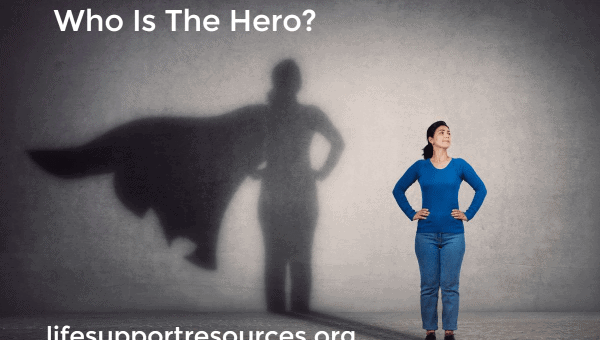LifeSupport - with contribution from Ian Burns
Who is the Hero?
One of the things we focus on is how we communicate with people about LifeSupport. We are guided in this area by marketing guru Donald Miller, CEO of StoryBrand. One of the foundational elements of marketing that Miller teaches is that, rather than us, the customer should be the hero of the story. In other words, you are the hero of our story. When we create and distribute ministry resources, we focus on acting as a guide for you as you do the heroic work of ministry.
Who is the Hero in Your Church?
For the people you are trying to reach, the story is about them – until it’s about Christ. Christ is the ultimate hero but if we don’t make the people in the pews the hero first, they won’t understand how Christ can be the guide for their life.
A Little Background on Heroes
Superman didn’t always have a weakness and kryptonite didn’t always exist. Radio listeners and comic book readers were losing interest in a hero who had no limitations. The producers and writers needed to introduce a weakness which Superman’s villains could attack. (Shelton, 2021). The writers learned a lesson that shows up in all great movies, a hero is defined by the obstacles they have to overcome.
The Current State of Heroes
We’ve all just experienced a year of obstacles. Covid has disconnected us in profound ways. In states of uncertainty, exhaustion, loss, and multiple stressors many people no longer feel like a hero, experiencing guilt and/or stigma in their weakness. Sometimes the hero faces overwhelming obstacles. If you look through literature and movies you’ll see that most successful heroes required a guide to help them through the obstacles.
The church has the opportunity at this time to act as a guide for the heroes in our pews. The church is able to hold out the ultimate help for a world of struggling people, in a word: “Jesus”, but not the sanitized version of Christ that shows a detached, and pristine savior.
We as hurting human beings need a God who knows our struggles intimately. Just as a Superman without kryptonite fails to inspire, a detached omnipotent being who does not deeply know suffering, provides little courage in the face of everyday trials.
Charles Spurgeon expressed it well: “But there is one very comforting thought in the fact of Christ’s ‘being made perfect through suffering’ — it is, that He can have complete sympathy with us. He is not a high priest that cannot be touched with the feeling of our infirmities. In this sympathy of Christ, we find a sustaining power.” (Spurgeon – Morning and Evening, 2021).
Take Aways
- The present suffering in our world creates opportunities to reach people and to help people be like Christ.
- God sees people as his heroes. Heroes need help to overcome the obstacles of life.
- God equips those in ministry as hero-guides
- Difficulties are not due to a lack of righteousness or blessings. Jesus was divine, but was born in a stable’s uncomfortable manger, due to no space being available to Him, mocked by religious leaders, as well as being humiliated and subjected to agony through crucifixion.
- Stories of overcoming through Christ are excellent tools for evangelism.
- Recognize the heroes in your church and share their stories.
Interested in Learning More?
Our latest Free Webinar, Attachment and Trauma – How it Impacts Body, Soul and Spirit is coming up on June 16, 2021. Presenter Melinda Cathey is a therapist who spent nearly 30 years working with orphanages and trains and consults on trauma informed therapy Melinda will share information on how church communities can become safer and more compassionate environments that help people partner more effectively for healing trauma.

